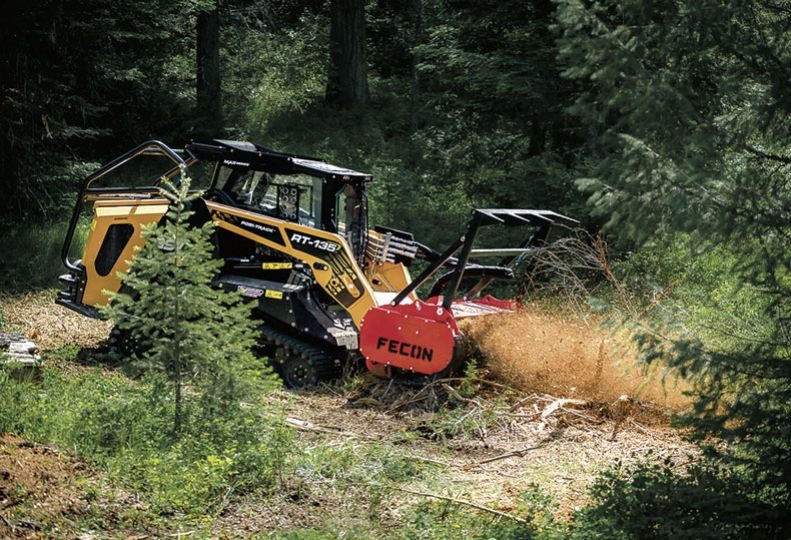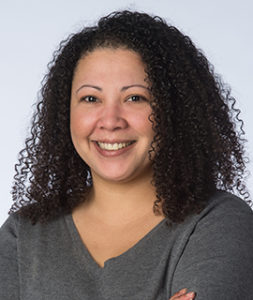
Home » FMI Equipment expects sales to rise
FMI Equipment expects sales to rise
Supplier capitalizes on awareness of wildfire prevention, mitigation

August 31, 2023
Heavy equipment dealerships that provide machinery for land management and fire mitigation activities should expect an uptick in sales and rentals after this summer’s devastating wildfire season ends, says Dave Kopp, of Spokane Valley-based FMI Equipment.
Kopp, president of Fiber Marketing International Inc., which does business as FMI Equipment, says public recognition regarding the importance of fire prevention and recovery will fuel business growth in 2024 as landowners take action to mitigate wildfire conditions in Spokane County next year.
He says it’s too late for FMI Equipment to supply equipment that would make a difference for the Gray and Elk fires.
However, for the next fire season, Kopp adds, “It will bring people to awareness and give them a renewed interest in getting their property done and taken care of, which will bring more work to our customers, and we’ll sell and rent more equipment.”
FMI Equipment is a 32-year-old business headquartered in Spokane Valley that offers sales, maintenance, parts, and rentals of heavy machinery for land management and fire mitigation. The company has 32 employees in the Spokane area and about 100 employees in total throughout seven locations in Washington, Oregon, and California.
Equipment the company supplies includes mulchers, track loaders, excavators, woodchippers, stump grinders, bucket trucks, and lifts that are used by professionals to clear land before a fire starts and to aid in land recovery after a fire.
The company’s customers typically are small businesses including arborists, landscapers, other companies that use compact construction equipment, and land-management agencies, he says.
FMI Equipment works with about 50 contracting companies in Eastern Washington and North Idaho that provide mitigation and management services, as well as government entities such as the Washington state Department of Fish and Wildlife, the U.S. Forest Service, and the Idaho Department of Lands, Kopp says.
“The state of Washington buys a lot of equipment for its highway department, Fish and Game has our equipment,” he says.
Several public utilities including the Pend Orielle Public Utility District also have acquired equipment through FMI Equipment, he adds.
Kopp says equipment sales make up most of FMI Equipment’s revenue, and rental services make up less than 10%.
The company’s 2022 revenue was $52 million, says Kopp.
FMI was incorporated in 1991 as a hydroseed company in the erosion-control industry.
Hydroseeding is a method of distributing seeds in a mixture of mulch and water.
Kopp—an independent hydroseed supplier at the time—joined the company as a partner in 1999. After two years, he expanded to include sales of track loaders and skid steers, which he also calls all-season vehicles, or ASVs.
In 2003, a new line of equipment for FMI Equipment brought further expansion when he thought to combine an ASV with a hydraulic mulching unit manufactured by Lebanon, Ohio-based Fecon Inc., Kopp says.
“We married one of those up to an ASV machine and I started traveling the area teaching people the concept,” says Kopp. “I’ve sold upwards of 200 mulching units over the last 20 years.”
Kopp says the mulch created is different from the typical material used in gardens and home landscaping.
Hydromulch is made of masticated plant material, water, and adhesive chemicals that replenish vegetation on burned slopes and help prevent soil erosion when sprayed on scorched lands.
Kopp explains that hydroseeding mulch is created through thermal-mechanical refining, in which plant materials, such as wood chips, are injected with steam and heated to 180 degrees. He says a set of machinery plates then twists the fiber out of the wood chips and blends the fiber with green dye and additives for soil adhesion. After drying the mulch, the material is mixed in a hydroseeder with water, seed, and fertilizer.
“It creates a matrix to allow seed to germinate, hold moisture, and moderate soil temperature,” says Kopp. “It’s all part of the green part of the world we live in and our contribution to erosion and fire mitigation. It’s something I’ve been passionate about my whole life.”
He says hydromulching the ground immediately after a wildfire will benefit soil by protecting it from disturbance, allowing seeds to germinate and establish new vegetation.
Kopp says he wants to highlight the wildfire resources offered by the Washington state Department of Natural Resources to landowners to protect their properties.
DNR’s website states its programs and resources will educate and empower communities to coexist with wildfire; show people how to adapt, prepare, and recover from wildfire; and advocate for community solutions.
The agency offers financial assistance to nonindustrial forestland owners with up to 5,000 acres to reduce their wildfire risk and improve forest health.
“Most people aren’t aware of the problem or the program,” says Kopp. “We supply all the equipment and supplies that people need to do a DNR fuel reduction project.”
He says he wants to keep public awareness for wildfire danger alive going forward, before the destruction fades from an immediate concern.
“We have to do a much better job of mitigating the urban interface between houses and wildland if we’re going to control the fire,” Kopp says. “It’s an everyday, nonstop, year-round thing.”
Latest News Up Close Retail
Related Articles
Related Products




